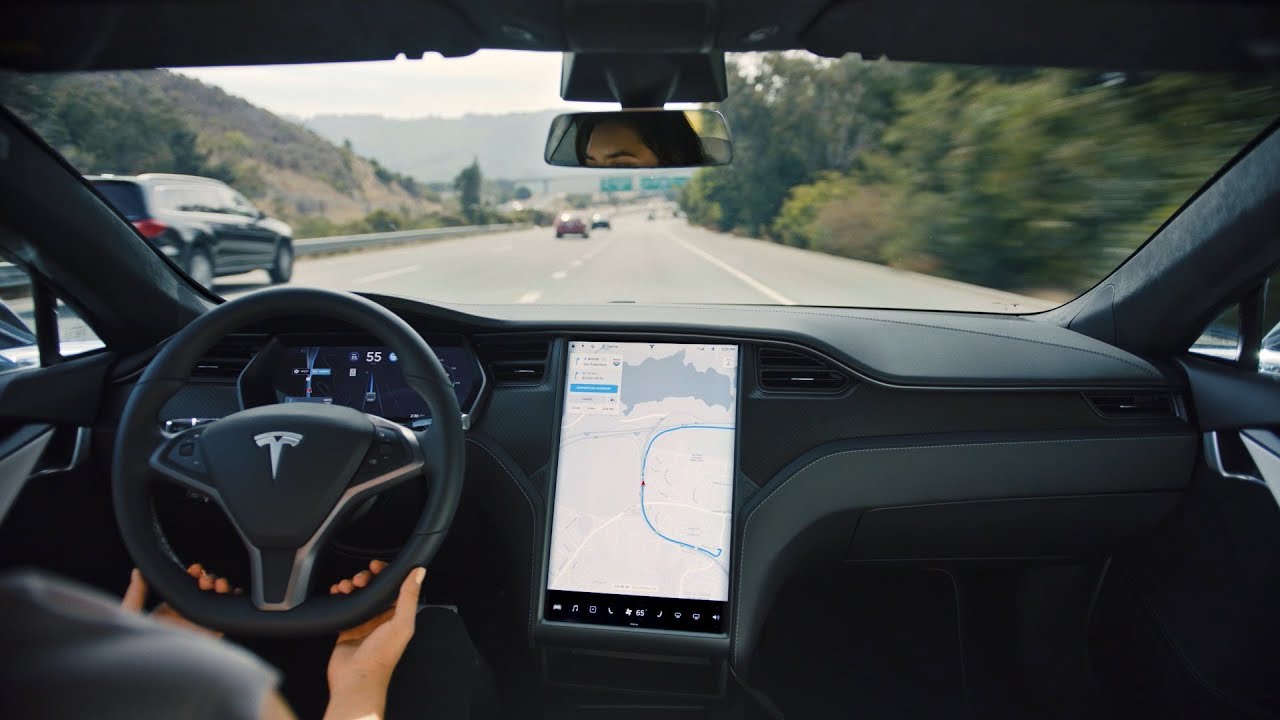The Insurance coverage Institute for Freeway Security (IIHS) examined Tesla Autopilot safeguards and located that drivers are fairly fast to adapt to the home windows of alternative the suite offers after warning them to concentrate.
The IIHS examine sought to find out whether or not partially automated driving methods and their safeguards enhance driver attentiveness. With the rollout of extra superior driver help methods (ADAS) and semi-autonomous driving functionalities, the purpose is to extend security.
Nevertheless, these suites nonetheless require the motive force to concentrate and pay attention to any potential alternative to take over if wanted. These driving methods and options are designed to extend security however nonetheless require the motive force’s full consideration, therefore their semi-autonomous label.

Credit score: Tesla
For the examine, the IIHS examined each Tesla Autopilot safeguards and people out there in Volvo’s Pilot Help.
The examine gave 14 drivers a month with a 2020 Tesla Mannequin 3 and required them to journey on Autopilot, when out there, over one month. The IIHS needed to see how drivers behaved main as much as, throughout, and after consideration reminders prompted by an absence of concentrate on their finish.
The Autopilot examine discovered that drivers might study safeguard sequences and establish “home windows of alternative” to carry out non-driving-related duties. These autos nonetheless utilized an Autopilot nag and a torque sensor to observe whether or not the motive force was paying consideration. Failure to maintain fingers on the steering wheel would end in consideration reminders.
Failure to vary after the reminders would end in suspension of the Autopilot system, generally known as “Autopilot jail.”
The examine discovered:
“In whole, the volunteers drove somewhat greater than 12,000 miles with Autopilot engaged. Throughout that point, they triggered 3,858 attention-related warnings from the partial automation system. About half of these alerts occurred once they had at the least one hand on the steering wheel however had been apparently not shifting it sufficient to fulfill the torque sensor.”
Most warnings didn’t go previous the preliminary reminder, and solely 72 cases resulted within the driver not responding quick sufficient to forestall the alerts from escalating.
The examine discovered that whereas preliminary warnings elevated by 26 p.c over the primary 4 weeks, displaying drivers had been liable to count on it, escalations fell by 64 p.c, which means they didn’t permit the system to proceed warning them.
Nevertheless, this doesn’t imply that non-driving secondary actions stopped after the primary warning. As an alternative, the examine confirmed one thing fascinating:
“The researchers discovered that the drivers did nondriving secondary actions, seemed away from the highway, and had each fingers off the wheel extra usually in the course of the alerts and within the 10 seconds earlier than and after them as they realized how the eye reminders labored. The longer they used the system, the much less time it took them to take their fingers off the wheel once more as soon as the alerts stopped.”
The IIHS admits that the protection impression of the change is tough to measure. Whereas the company famous that some analysis exhibits the longer a driver permits their consideration to wander, the extra seemingly they are going to be concerned in an accident, the examine additionally stated that “even quick lapses of consideration develop into so frequent that the durations of supposed engagement between them have little worth.”
The examine additionally stated the safeguards will be useful to conduct instantly and in the long term, and different patterns confirmed doubtlessly unintended penalties:
“The present examine has proven that driver interactions with partial automation are dynamic. Among the adjustments we noticed point out that system safeguards can beneficially form conduct each instantly and in the long term, whereas different patterns revealed doubtlessly unintended penalties. It is very important observe that these findings are seemingly not distinctive to Tesla’s Autopilot, as many methods available on the market have overtly related safeguard designs. As such, some observations from this examine perhaps related to different driver help expertise that also requires the motive force to be engaged within the driving process.”
IIHS Senior Analysis Scientist Alexandra Mueller, who led the examine, stated:
“These outcomes present that escalating, multimodal consideration reminders are very efficient in getting drivers to vary their conduct. Nevertheless, higher safeguards are wanted to make sure that the conduct change really interprets to extra attentive driving.”
Whereas this examine supplies proof that maybe higher safeguards are wanted, you will need to observe that Tesla has upgraded the in-cabin digital camera to observe driver attentiveness.
Tesla prompts cabin-facing digital camera in bid to enhance automobile security
Moreover, many vehicles are on the highway with out these driver help and security options.
Distracted driving goes to happen whether or not a automobile is supplied with fashionable expertise or not.
Tesla and different automakers have introduced their latest autos in control within the combat in opposition to distracted driving, and maybe this examine confirmed that warnings might and may come at various charges to forestall anticipation from drivers.
I’d love to listen to from you! If in case you have any feedback, issues, or questions, please electronic mail me at [email protected]. It’s also possible to attain me on Twitter @KlenderJoey, or you probably have information ideas, you’ll be able to electronic mail us at [email protected].



